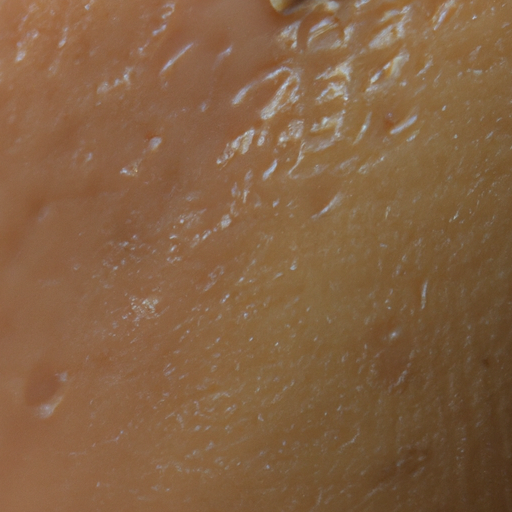As a dermatologist, I often encounter patients who are frustrated with their oily skin. The excess oil can lead to a shiny complexion, clogged pores, and frequent breakouts. However, with the right skincare routine and lifestyle changes, it is possible to manage oily skin effectively. Here are eight expert tips to help you combat oily skin and banish the shine.
1. Cleanse Regularly: Cleansing your face twice a day is essential for removing excess oil and impurities. However, avoid harsh soaps or cleansers that can strip your skin of its natural oils. This can trigger your skin to produce even more oil to compensate. Instead, opt for a gentle, oil-free cleanser designed for oily skin.
2. Use Oil-Free Moisturizers: It’s a common misconception that oily skin doesn’t need moisturizing. Even oily skin can become dehydrated, which can stimulate more oil production. Look for oil-free or non-comedogenic moisturizers that hydrate your skin without clogging your pores.
3. Exfoliate Weekly: Exfoliating helps to remove dead skin cells that can clog pores and increase oiliness. However, over-exfoliation can irritate the skin and trigger more oil production. Stick to exfoliating once or twice a week with a gentle scrub or chemical exfoliant.
4. Use Blotting Papers: Blotting papers are a quick and convenient way to absorb excess oil throughout the day. They won’t disrupt your makeup and can help to maintain a matte finish. However, avoid rubbing the paper on your skin as this can spread oil around.
5. Incorporate a Clay Mask: Clay masks are excellent for oily skin as they absorb excess oil and unclog pores. Look for masks containing kaolin or bentonite clay. Use once or twice a week for best results.
6. Watch Your Diet: Certain foods may contribute to oil production. Diets high in processed foods, sugars, and unhealthy fats can stimulate oil production. Instead, opt for a balanced diet rich in fruits, vegetables, lean proteins, and whole grains.
7. Stay Hydrated: Drinking plenty of water helps to keep your skin hydrated from the inside out. Hydrated skin is less likely to produce excess oil. Aim for at least eight glasses of water a day.
8. Consult a Dermatologist: If you’re struggling to manage your oily skin, it may be time to consult a dermatologist. We can assess your skin type, identify any underlying issues contributing to your oiliness, and recommend tailored treatments or products.
Remember, everyone’s skin is unique. What works for one person may not work for another. It may take some trial and error to find the right routine for your oily skin. However, with patience and consistency, it’s entirely possible to manage oily skin and achieve a balanced, healthy complexion.
Lastly, it’s important to note that having oily skin isn’t all bad. The natural oils in your skin help to keep it moisturized and protect it from environmental damage. With the right care, you can turn your oily skin into a glowing, radiant complexion.
In conclusion, managing oily skin involves a combination of proper skincare, a healthy diet, and lifestyle habits. If you’re struggling with oiliness, don’t hesitate to reach out to a dermatologist for professional advice. With the right approach, you can banish the shine and embrace your natural glow.



